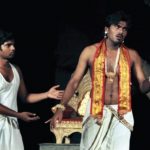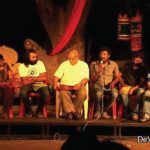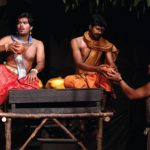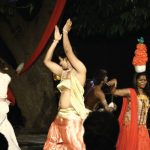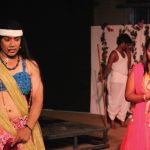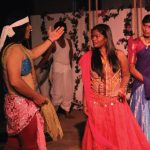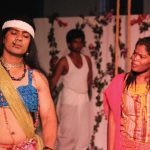The great epic Mahabharatha has contributed immensely to Indian culture. Tamil Nadu is home to Theru-k-koothu, a form of street theatre with primordial folk origins.
The current production – Kisaga Vadham is a standing testimony to both these gifts of Indian heritage. This piece is based on the Koothu play of the same name and serves as a living modern signpost of an ancient art and of an even more ancient epic.
After the loss in the game of dice, the Pandavas undergo a series of trials and tribulations. Post the Vanavaas – the exile in the jungle, the Pandavas are to live incognito accompanied by the Sage Thowmiyar in the ‘Agnaathavaasa’ phase. They take refuge in the kingdom of Viraadanagar in various guises. Yudhishtira becomes a counselor, Bhima a cook, Arjuna a eunuch dance-master, Nakula a horse-keeper, and Sahadeva becomes a cowherd while Drupadi finds herself as a daasi to the Queen.
The circumstances find the Pandavas rehearsing along with Draupadi in the nights post their daily routines. The Sage Thowmiyar, a master narrator and a trickster par excellence guides them while he poses as the leader of a performing troupe. Meanwhile, Kisaga, the brother of the queen of Viraadanagar begins to lust for Draupadi. An embarrassed Draupadi seeks refuge in the mighty Bheema who proves to be the nemesis of the wily Kisaga, ending the misery for Draupadi and killing him.
